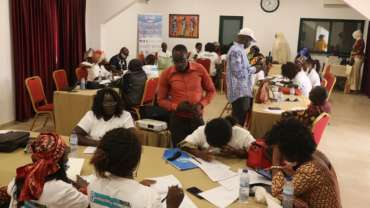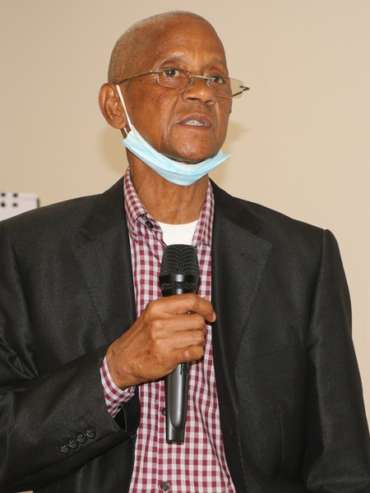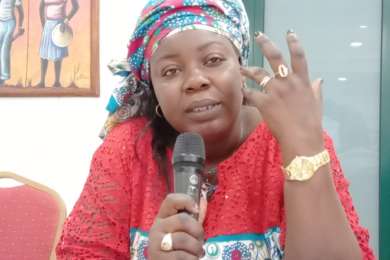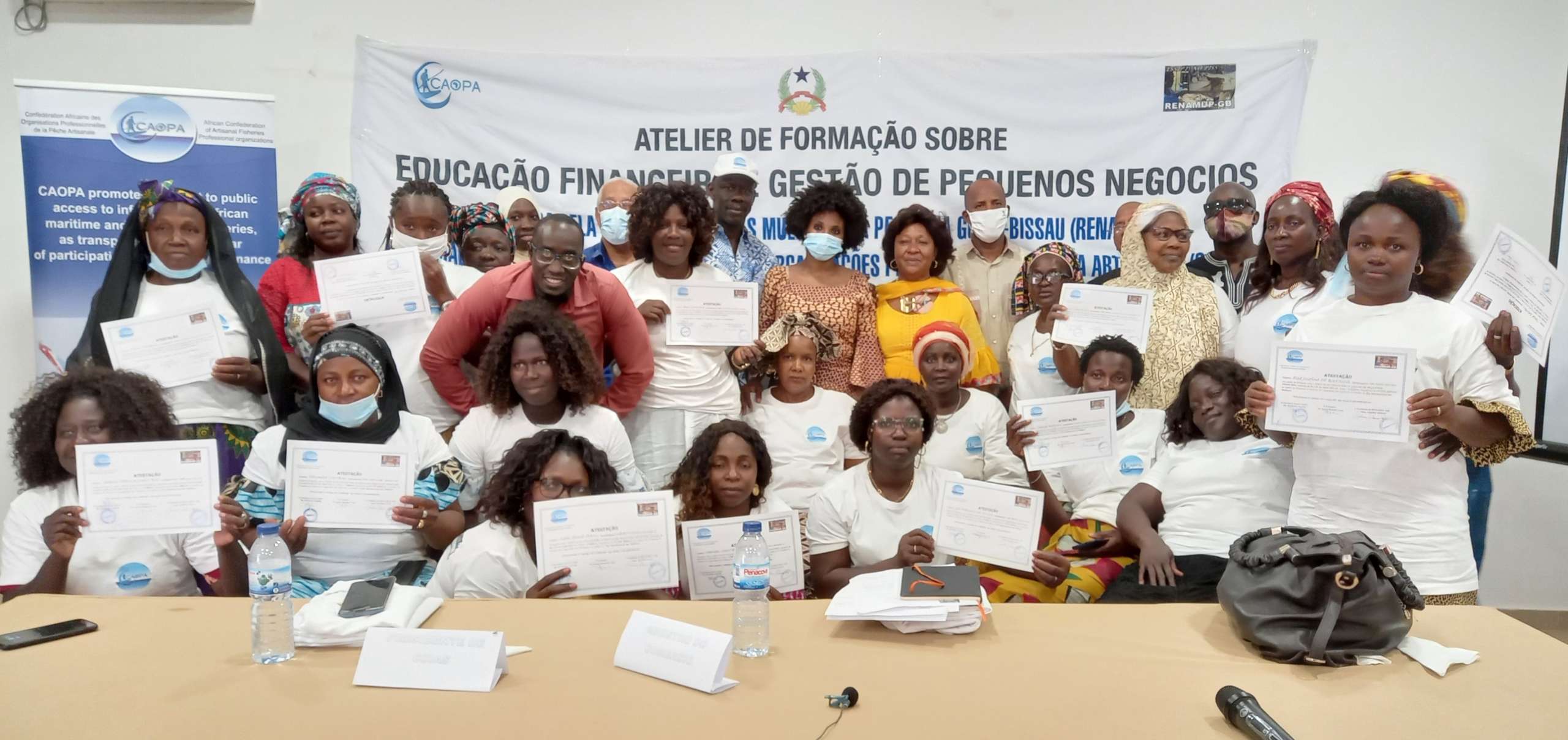The African Confederation of Professional Organizations of Artisanal Fisheries (CAOPA) in partnership with the National Association of Women for Economic Activities (AMAE) held a training session in Bissau (Guinea-Bissau) from 6 to 7 April 2021. It aimed to train women working in the fisheries sector, associate members of AMAE.
 The vice-president of CAOPA, Antonia Adama Djalo recalled that the goal is to enable women’s access to savings and credit mechanisms and institutions and to present specific recommendations to governments, central and development banks as well as banking institutions in order to structure their services to offer services to urban and rural women involved in micro, small and medium enterprises.
The vice-president of CAOPA, Antonia Adama Djalo recalled that the goal is to enable women’s access to savings and credit mechanisms and institutions and to present specific recommendations to governments, central and development banks as well as banking institutions in order to structure their services to offer services to urban and rural women involved in micro, small and medium enterprises.
The training modules developed by Sérgio Mendes Resende Costa, Consultant in Business Administration and Management, allowed the participants to understand the cycle of creating a business, to define the trade, to know how to plan the activities, to know the market, how to make the e-recording of the registers (income-expenses-stock), etc.
During the two days, the 25 participants are trained in “financial education, their relationship with money, the family budget, how to reduce unnecessary expenses, how to save today to earn tomorrow, how to calculate the costs of products or services and set the selling price taking into account the market; management of small businesses or trade and sharing of experience in managing a credit union with the solidarity fund of Nianing of Senegal” among others.
 “In the case of small businesses, the appropriate management instruments are established, such as the register of costs and revenues, that is, expenses and revenues and the determination of commercial results,” said Sérgio Mendes Resende Costa. He believes that the two days are very fair for such an important training.
“In the case of small businesses, the appropriate management instruments are established, such as the register of costs and revenues, that is, expenses and revenues and the determination of commercial results,” said Sérgio Mendes Resende Costa. He believes that the two days are very fair for such an important training.
The trainer is satisfied with what was done. “We arrived at a good result at the end of the two days.
Because in Guinea-Bissau, he explains, the economy is managed by women. “There is no private sector in Guinea-Bissau. It is the women of the informal sector who hold the economy”.
Sérgio Mendes Resende Costa maintained that women of Guinea-Bissau work in difficult conditions. “They lack materials and funding. There are no credit banks. Microfinance institutions do not operate in Guinea-Bissau.
His point of view is shared by Mrs. Maria CHEHAD, vice-president of AMAE. “Here in Bissau, we do not have microcredit banks. We have commercial banks. With these banks, there are so many guarantees that they ask for and that no fish seller can give”.
She advocates the setting up of development banks that agree to allocate small credits to women so that they can work “without any problem”.
Despite the constraints raised by the women of Guinea-Bissau, Mrs. Fatou SENE, manager of the women’s solidarity fund of Nianing (Senegal) is optimistic. She advised her colleagues to organize themselves in groups, in women’s associations, and that they should have self- confidence in order to have more strength and be able to mobilise resources. “If each one puts her hand in, the donors or the State itself will come to assist them”.
 About her experience with the solidarity fund of Nianing, she said: “the objective of our fund is to improve the purchasing power and empowerment of our members to better organize, enhance and make our activities profitable, this in sustainability.
About her experience with the solidarity fund of Nianing, she said: “the objective of our fund is to improve the purchasing power and empowerment of our members to better organize, enhance and make our activities profitable, this in sustainability.
At the end of the training, the participants committed themselves to put into practice the lessons learned. They recommend to CAOPA and other partners to continue this kind of training, to finance them in order to improve their added values and to strengthen their activities.


